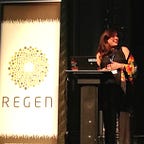UN SDGs
The trouble with the UN SDGs 2030 global goals
As we invest trillions of dollars in sustainable development, let’s tackle the root causes of the problems we’re trying to solve
The Sustainable Development Goals SDGs are being used as a global framework for investment, philanthropy and development budgets. What could possibly be wrong with that?
I am all in favor of collective action and cooperation, and I understand the complexities of making global leaders agree. But the Sustainable Development Goals largely ignore the causes of our most pressing challenges in favor of addressing only the symptoms.
We see the impact objective of “ending extreme poverty” but we have yet to see impact objectives that include “ending extreme wealth.”
We see “zero hunger” but never hear “end market speculation and manipulation.”
We see “reduce unemployment” but never hear of “end consolidation.”
System-change?
I have watched this since the SDGS began to take hold as a global investment thesis. I saw they put justice and peace at the end instead of the beginning. I started questioning if these goals sought incremental change or a real transformation. Are these goals sponsored by corporations and large philanthropists? Are they following some specific agenda?
One example: Naming SDG №2 “Zero Hunger” instead of “Food Sovereignty,” for example, gives a free pass to corporations delivering high-sugar food to young children and disguising this as ending hunger. Rather than relieving hunger, such actions deepen child obesity and diabetes here in Mexico.
Indigenous communities in Pacific islands, Southeast Asia and Mexico, for example, are losing their ability to grow their own food in Milpa style (using permaculture). Increasingly they are becoming consumers of junk food that is sometimes cheaper, more accessible and less labor intensive.
This creates all kinds of health problems, which leads to the increasing difficulty of achieving SDG №3: Good health and well being. No amount of medicine, vaccines and biotech will cure a sick society with a sickening environment, but if we have a healthy society and a thriving environment we can surely afford to give medicine to those who truly need it.
One of the most problematic goals is SDG №8: Decent work and economic growth. The goal targets 7% annual economic growth, among other myopic standards. Targeting growth, instead of balance in a resource-finite world, is a recipe for environmental degradation. As Kenneth Boulding once said: “Anyone who believes in indefinite growth, on a physically finite planet, is either mad or an economist.”
Targeting decent jobs and ending modern slavery by 2025 is such a low standard. What does decent really mean? Why don’t we build, instead, a more direct path to self-fulfillment and autonomy?
Take SDG №16: Peace and justice. If risks and benefits are unfairly distributed in business, no amount of philanthropy or development aid will be able to address inequality and violence. But if risks and benefits are distributed in a socially and environmentally just way, then we may achieve peace.
Words matter
When international organizations have the power to carry messages that will deploy an immense amount of resources, time and energy worldwide, that will be adopted by governments, banks and corporations, that will be heard in every corner of the globe there is a genuine responsibility of crafting the right message.
True Sustainable Development Goals would include individual empowerment, economy at the service of people and planet. How about thriving local communities, decentralizing banks, end monoculture?
Saving the oppressed is always so sexy and romantic — but what about exploring the forces that are oppressing and putting a stop to those first?
Is better a good enough destination for all of us? Or can we achieve best for all of us? Here’s my manifesto:
Let’s stop investing in medicine and start investing in health.
Let’s stop focusing on jobs and start focusing on self-sufficiency.
Let’s evolve from a focus on economic growth to focus on well-being.
The world doesn’t need indefinite growth, it needs to understand ecological limits and what balance looks like.
Let’s never settle for making the “means” the destination.
Let’s evolve from financial “inclusion” to financial “justice.”
Let’s move away from less dirty air towards clean air.
From ending poverty to sharing prosperity and abundance for all with all.
From zero hunger to food sovereignty.
From doing less harm to regeneration.
From fixing the way we give back to ending the way we extract.
Money doesn’t need returns, we need financial safety and transcendence.
Let’s not obsess about outputs when we can have outcomes.
Never forget that short-term thinking can sacrifice long-term goals (see photo).
Let’s stop focusing on sustainability and start focusing on prosperity and thriving.
You don’t need to be rich, you need to be happy.
The promised land is happiness not pleasure.
Happiness comes from plenitude and plenitude from love.
Love comes with serving.
And love is never mediocre middle ground but full surrender.
We aren’t here to make the world “better” we are here to make the world the best imaginable place for all.
Laura Ortiz Montemayor is co-founder of SVX Mexico.
